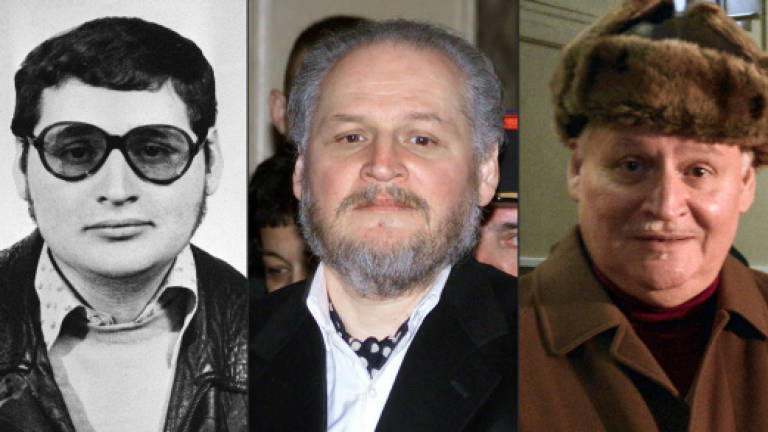A final trial, and soapbox, for Carlos the Jackal

PARIS: Self-styled revolutionary Carlos the Jackal was back in a French court on Monday for what is expected to be his final trial, appealing the life sentence handed down last year over a deadly 1974 bombing in Paris.
It was the third life term for the 68-year-old Ilich Ramirez Sanchez, who became one of the world's most notorious fugitives in the 1970s and 80s during his pro-Palestinian campaign of terror.
True to form, Carlos seized his chance to turn the courtroom into a stage for theatrical diatribes, raising his right fist in defiance as he took the stand before blowing a kiss towards journalists.
"I am a professional revolutionary; revolution is my job," he said, stating his nationality as "Venezuelan and Palestinian".
He had already bragged at last year's trial that "No one in the Palestinian resistance has executed more people than I have."
But he has denied any responsibility for the attack at the Publicis Drugstore at Saint-Germain-des-Pres, in the heart of Paris's Left Bank, more than 40 years ago, when a grenade was thrown from the mezzanine restaurant into the crowded gallery below.
Judges determined that all evidence pointed to Carlos, even though no DNA or fingerprints were found after the bombing which killed two people and injured 34.
"There are incredible weaknesses in this case: witnesses manipulated by the security services, liars, fake evidence," said Francis Vuillemin, Carlos's longtime lawyer along with Isabelle Coutant-Peyre, who has since become his partner.
"We are going to break it all down, and ask for an acquittal."
Campaign of fear
The trial recalls an era when Europe was repeatedly targeted by professed revolutionary militants, including some claiming to support the Palestinian cause.
Little known at the time of the Drugstore attack, Venezuelan-born Carlos shot to the front pages the following year when his commando group burst into a meeting of the OPEC oil cartel in Vienna, taking 11 people hostage. Three people were killed.
His singular portrait — with heavily tinted black glasses and a sardonic smile — would capture the public imagination as he spent twenty years on the run, repeatedly giving the slip to international security services.
French police finally arrested him in the Sudanese capital Khartoum in 1994, and he has been imprisoned ever since.
He was given a life sentence for the murders of two policemen in the French capital in 1975, as well as that of a former comrade who betrayed him.
He was later found guilty of four bombings in Paris and Marseille in 1982 and 1983, some targeting trains, which killed a total of 11 people and injured nearly 150.
Prosecutors say the grenade at the Publicis Drugstore — now located on the Champs-Elysees — was part of several attacks aimed at pressuring French authorities to free a member of the Japanese Red Army who had been arrested at Paris's Orly airport.
The group was aligned with the Popular Front for the Liberation of Palestine, of which Carlos had become one of the main operatives in Europe.
Several witnesses appeared to back this theory at last year's trial, in particular one of Carlos's former associates, Hans Joachim Klein, who said Carlos told him he had thrown the grenade.
The "Jackal" himself, a nickname that came from a fictional terrorist in the 1971 Frederick Forsyth novel, "The Day of the Jackal", claimed responsibility in a 1979 interview with the magazine El Watan Al Arabi.
But Carlos later claimed that he had never given such an interview.
At the trial last year, he had argued that he should not be required to testify against himself, while claiming that he faced death if he divulged operational information. — AFP